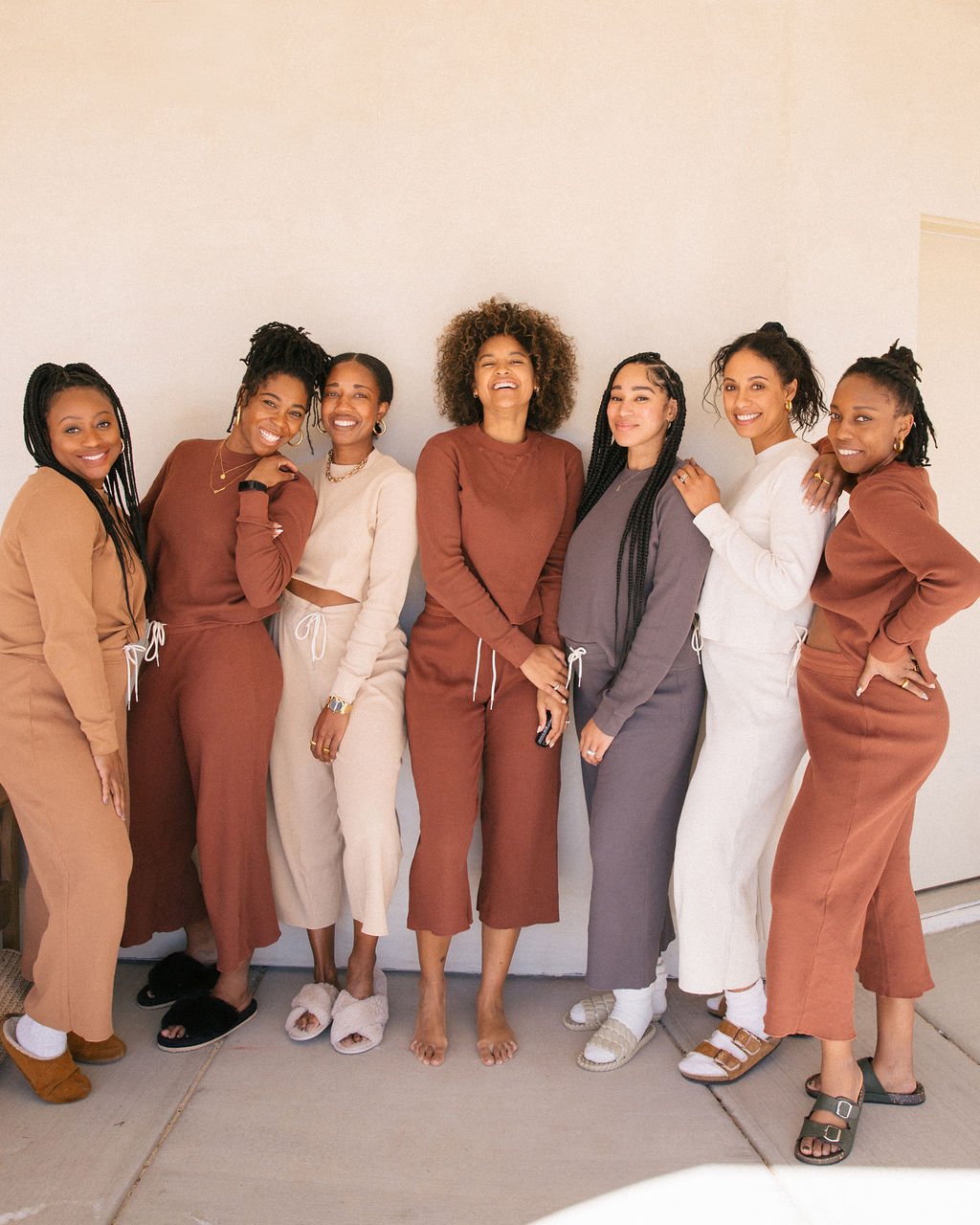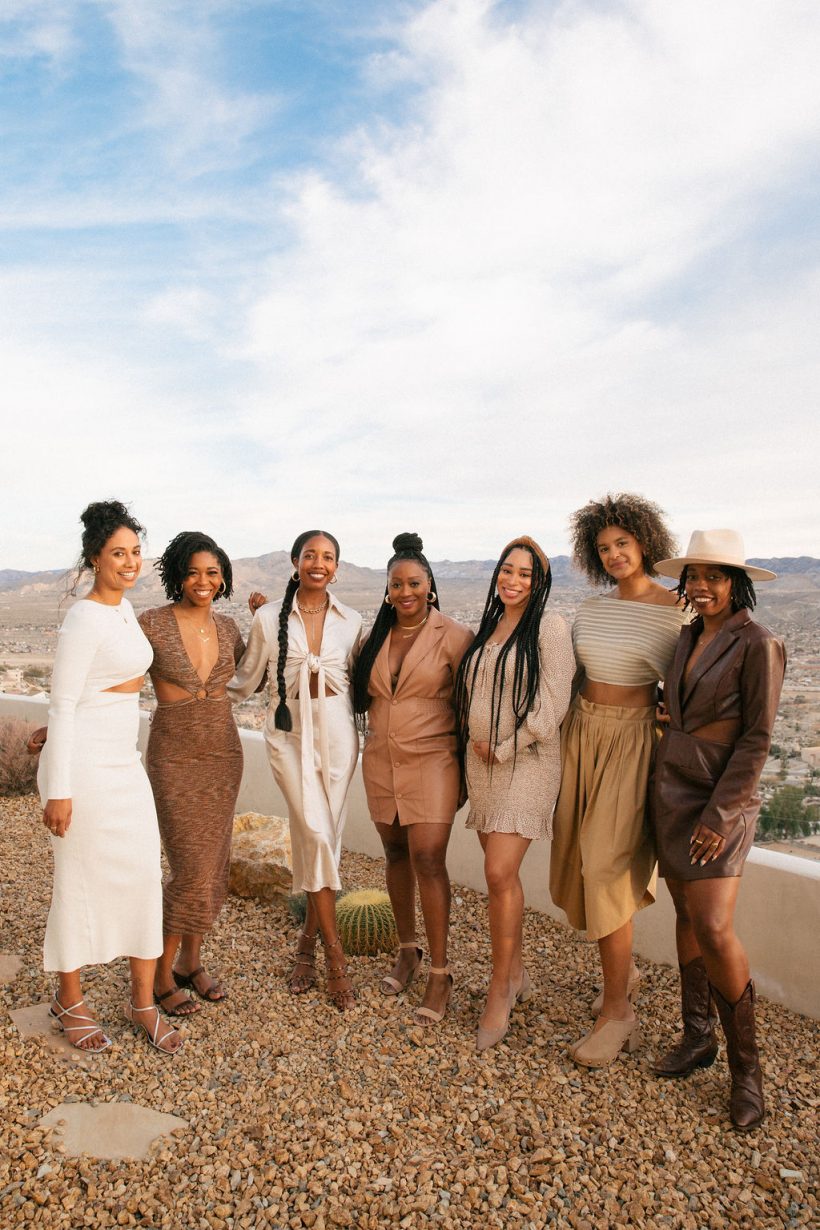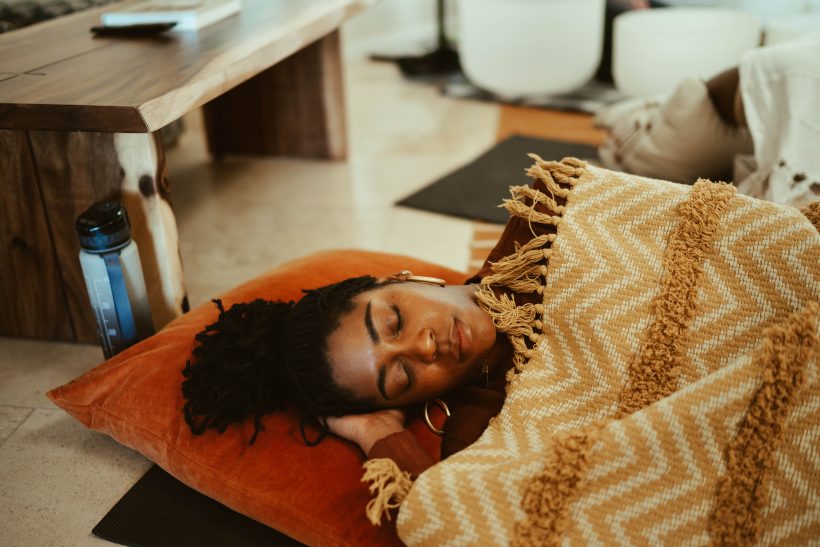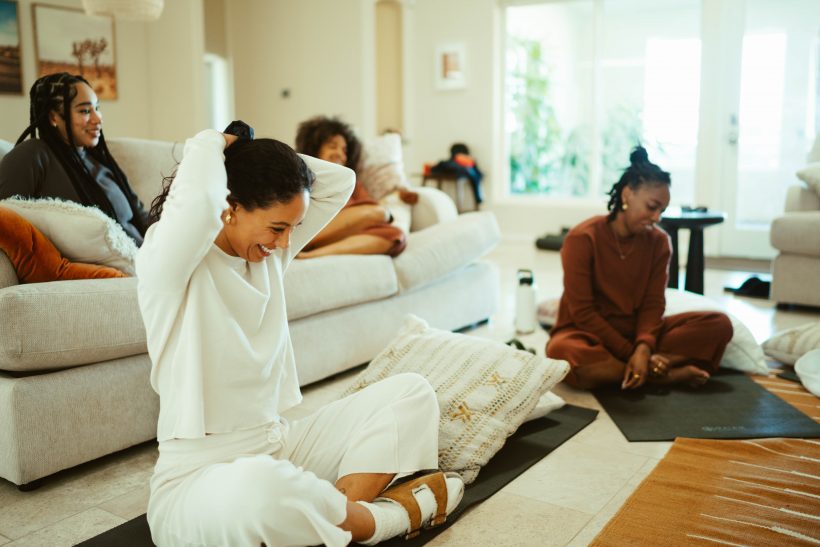“How We Hold Space in the Present is Connected to How We Honor the Past”–A Love Letter to Black Women for Women’s History Month
Pursuing rest in the midst of resistance.

We honor Women’s History Month by recognizing powerful women. But as we celebrate, the contributions and stories of women of color (specifically Black women) are often silenced, siloed, or severed from our collective memory. And while the trails blazed and movements made are a vital piece of how we hold space for gender parity and women empowerment, how we nurture space for ongoing contributions, creativity, and disruption by women is just as critical. How we hold space in the present is connected to how we honor the past. With this spirit, I’ve begun to unapologetically pursue and pause for moments of rest. It’s this powerful practice that offers space for reflection and fuels our continued resistance.
When reflecting on the many ways Black women and women of color have contributed to the cultural landscape of our communities and this country, I lament how these stories and visuals have remained outside our history books, national memory bank, and even our contemporary social media feeds. The pursuit of gender equity demands the actions of racial justice. And one of the most powerful drivers of sustained resistance, and the most foundational rights we have as humans, is that of rest.

Audre Lorde said it like this, “caring for myself is not self-indulgence, it is self-preservation, and that is an act of political warfare.”
We have endured the pain of seeing Black and Brown bodies brutalized (not just in its current iteration but over centuries) and then viralized. From this trauma, we are left to contend with the realities of what it means to be both women and women of color in this country—and in our bodies. Emotionally, psychologically, and physically the impact of racial trauma is real.
And so, for my 34th birthday, I made the decision to hold space for rest, healing, and peace. A practice not so easily practiced by my ancestors and the Black women I’ve come to admire (from Dr. Angela Davis to my grandmother, Dr. Sylvia “G-mom” Rousseau), working on the front lines of justice. In the midst of our ongoing resistance for liberation and justice, Black women deserve to not just continue to operate from a place of strength and resilience, but to make history from a place of wholeness and peace. In a world that constantly beckons us to be strong, resilient and present, I offer a paradigm shift. Perhaps we lean into the words we hold so dear at Rosa Rebellion, to pursue “rest in the midst of our resistance.” A stance that feels ever delicate, and yet ever so dire.
So, in these last few days of Women’s History Month, here is my love letter to Black women through reflections and practices observed during a beautiful weekend retreat in Joshua Tree.

Dear Black Woman,
As we hold space to honor the past, present, and future of women leading radical lives, I invite us to reconsider how we can pursue radical rest in the mist of our radical resistance. Let us resist oppression, let us resist alienation, let us resist the silencing of our stories, let us resist the patriarchal structures, let us resist the centering of only white voices in women movements, let us resist the capitalistic paradigms that keep us working past exhaustion, and let us resist the narratives that we must earn rest.
Last month I turned 34 years old. It was my prayer, plea, and promise to myself to enter the year from a place of reflection and rest. As we reflect on the last two years of visceral racial injustice, a pandemic that has killed Black and Brown people at alarming rates, and navigating the ways in which our mere existence is interrogated—from the politicization of our hair (look up the Crown Act) and the policing of our bodies, to the expectations to show up for ourselves and community at all cost, I ask myself: Where is there space for us to occupy a posture of peace?
Poet June Jordan offers us these words, “to tell the truth is to become beautiful, to begin to love yourself, value yourself. And that’s political, in its most profound way.” This rhythm will require us to give ourselves permission to move differently, hold boundaries and center our well-being. It’s an active practice, one that I have not mastered. In fact I have barely embarked on it. But what I know is that our peace demands it, and our continued investment in community requires it. Exhaustion and martyrdom will not free us.
Perhaps the below reminders can inform new practices that honor the past of brilliant women, inform a present of disruptive voices, and forge a future of radical womanhood.
You require rest:
“Silence is a fierce resistance against the violence of a world whose words are not for us. In a world where we are expected to constantly articulate our dignitary, we will rest.” – Cole Arthur Riley

The preface
For much of my adult life, my trips have been motivated by work, family or obligation. I can count on one hand the trips or intentional quiet moments I’ve created space for rest out of pure desire or need. Perhaps it is the subconscious toxic narrative I’ve nurtured that said that rest and reprieve were earned. That unlike sleep, rest was a posture that I could only occupy when convenient or carefully curated. It’s why I stacked un-used gift cards to spas or had an incomprehensible amount of vacation days left over when I left my position at UT a few years ago. I guess I was waiting for the moment of such high stress, exhaustion, or spiritual fatigue that my body was in dire need of respite. Well, if these last few years have taught me anything, it is that my empathy for others, my investment in community, my pursuit of equity and justice in this world is innately connected to my ability to care for my own mind, soul, and body. That creating this space didn’t make me selfish, but demonstrated a love for self.
And so, in the midst of the unknown of year two of a raging pandemic, the ongoing experiences of oppression and the anger that stems from a lack of systemic compassion or justice, I honored the desire (and need) to press pause and surround myself with things that give me peace: friendship, food, and cool fits in the desert.
The picture
With help of life-long friendships and my young sister, I planned a trip to the high desert area of Yucca Valley. Throughout the weekend we enjoyed hiking in the Joshua Tree National Park. Stepping outside in nature served as permission to step outside our normal life rhythms.
The Practice (via Black Liturgies)
Inhale: The world demands much of me.
Exhale: Give me the courage to be still.
You deserve peace:
“Silence. Stillness. To give her soul a chance to attend to its own affairs at its own level.” – Toni Cade Bambara.

The Preface
Inundated by the images of police brutality, Covid, and war; overwhelmed by a country’s unwillingness to tell our full stories, protect our full humanity, we must create space to experience peace. From voting disenfranchisement and the caging of immigrants to the violence and control around women’s bodies and lack of economic parity of women, these marks of inequity bear real consequences on the minds and bodies of people of color and as incubators of care and compassion, our collective psyche as women. The resulting trauma isn’t just an indictment on failed political processes or systemic inequities, but a disturbance of our peace. We have an opportunity amidst this pandemic world to carve out a new rhythm for ourselves, one that centers our dignity, our humanity, and our peace. It shouldn’t be so hard-fought. It should feel innate, intimate, and integral to our everyday posture.
The Picture
Protecting our peace is active work. Day to day, that may look like logging off Instagram for a day (or three months), taking a walk, finding time for prayer or meditation. On this trip, I opened myself up to a new practice, sharing the experience of a sound with her and her friends. Amidst the backdrop of the Yucca Valley, in the comfort of gifted loungewear from Mate the Label, (a Los Angeles-based, women-owned brand with a commitment to sustainability and inclusivity), we each drifted to sleep, holding space for meditation, prayer and quiet. For 60 minutes we were able to disrupt the swirl of the endless to-do lists, the triggers of their Instagram feeds, and the self-doubt that the world incessantly throws at us, with sounds of Tibetan bowls. Low-key, it was the best sleep of our life. It offered a glimpse into the possibility of internal peace, even with the world (literally and figuratively) at war.
The Practice
Inhale: I will not forget my self.
Exhale: The lie that our empathy and care for our community and world requires the sacrifice of our peace.
You are joy:
“I embraced joy as my birthright. Radical black joy is inherent as a human need and not some special trinket you get after you rise high enough on the social-economic ladder or unlock some special level of desirability or accomplishment. –Tanya Denise Fields

The Preface
As we reflect on the moments, movement, and matrons that give us reason to celebrate this month, we often focus on the miraculous and magical feats. From the underground railroad and mothers of the Civil Rights Movement, to the radical women who spurred the Black Power and Chicana movement, to today’s authors of the Black Lives Matter, Latina Rebels, and Stop Asian Hate movements, our resilience and our disruption centers a story of resilience, and overshadows our stories of joy. And with that practice has come an unhealthy and untruthful narrative that as Black women, we must be resilient, strong, and sacrificial—and we don’t deserve joy like everyone else.
There is more to our experience as women of color than struggle and oppression. We are authors of bliss, anchors of humor, and architects of delight. Getting to that place requires that we invite practices of joy. Joy in some ways is an exercise of freedom, an active posture of liberation. As we pursue justice, as we seek shalom, as we resist and persist, our history, our present, and our future can still be that of joy.
The Picture
No matter where I am, or what is happening in the world, the sight of the sun offers hope and happiness. Perhaps it’s because it represents promises of life, and our capacity for peace. It is with that understanding that we planned a “golden hour” dinner and photoshoot, because nothing brought me more joy than seeing my friends golden and radiant and celebrating such friendship with the fellowship of food. Capturing the light of the Valley and the radiance and resilience of women I admire was the amazing Riley Blanks Reed of Woke Beauty. Riley is a friend and photographer whose life’s work serves to elevate our stories and evoke our inner-selves through her lens.
Riley shared photography duties with the talented Tamra Gibson who documented the whimsical candid moments of the weekend and the magical meal prepared by the culinary genius of Vija Adam of Sunday Dinner and Eboni Wells of Dizzy Desserts. Exuding joy in their preparation, presentation and powerful flavor palate, it was a treat to celebrate the brilliance, boldness, and beauty of women of color with such bright and beautiful fares prepared by talented Black women. They delighted us with a sweet potato and chicken curry, a ginger salmon and veggie stir-fry and my favorite dessert: gluten-free apple crisps. While Vija and Eboni dazzled our taste buds, they more importantly fed our souls. The evening offered a snapshot of the power of our joy—to fuel a life of fortitude, disruption, and herstory.
The Practice
Inhale: You don’t owe them all of you. Your boundaries are holy ground. I was meant for more than giving.
Exhale: Help me to receive. I don’t have to save us. My boundaries are holy. Healing is a promise. Joy is a gift.
And so, I leave us with this poem written to Black girls by my friend and ever inspiration, Cole Arthur Riley:
“Guide us to communities which see us in the fullness of our humanity, but regardless, let us walk in knowledge of our dignity. And let us marvel at those who walked before us, knowing that our story is entwined with theirs; that we come from a brilliance of mind and heart. Free us from the lie that our dignity and our brilliance are things to be proven, but let the truth of them hold us like the warmth of the wombs that formed us.”

 ValVades
ValVades 































